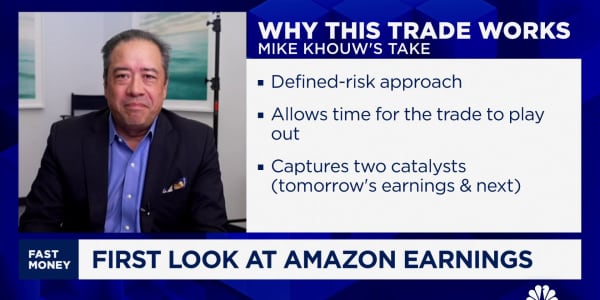
After an impressive rally over the past month, the Nasdaq Composite is trading ever-closer to the all-time highs reached in early 2000 at the height of the tech bubble. But according to Sterne Agee chief market technician Carter Worth, the rally is not as healthy as it appears—which points the way to pain ahead.
The basic problem, according to Worth, is the rally is not "broad-based." In other words, the Nasdaq is surging due to the strong moves of a few highly regarded stocks, such as Apple, Microsoft and Facebook.
To illustrate this fact, Worth points out while the Nasdaq Composite itself is up nearly 11 percent the year, the median stock is only up 0.35 percent, and the average stock is actually down 1.4 percent (as of Friday).
An even more striking fact is the 250 largest stocks by market cap are up 10 percent this year, while the 250 smallest stocks are down 22 percent this year. (Of course, included among the Nasdaq's smallest stocks are some truly miserable picks, including companies that have announced non-reliance on financial statements or straight-up filed for bankruptcy).
Read More Tom Lee has one big reason to be super bullish now
Worth graphically represents this trend by furnishing a comparison between the price of the Nasdaq Composite and its cumulative advance/decline line.
The advance/decline line (which is computed by subtracting the number of declining stocks from the number of advancing stocks, and then adding to that the previous days' advance-decline line value) had been traveling alongside the Nasdaq itself, but has recently appeared to diverge, after making a recent peak on March 1.
Read More Forget stocks—here's where the real action is now
"We have the big names doing all of the lifting, and that, at some point, runs its course," Worth said Friday on CNBC's "Options Action." "It's very much a case of haves and have-nots, and that usually ends with lower prices for the aggregate."
Follow the show on Twitter: @CNBCOptions.






